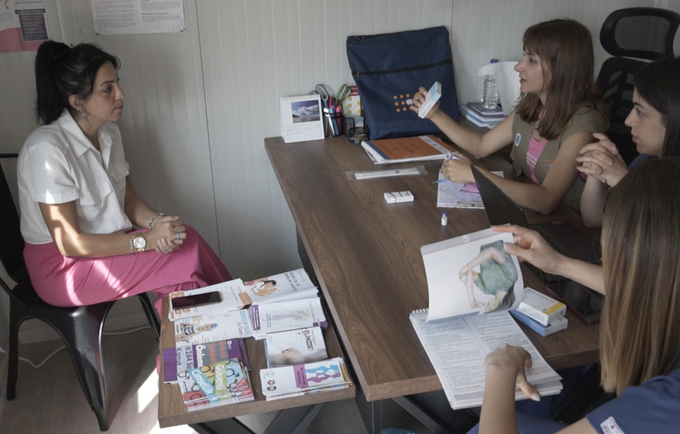Cancer of the cervix is one of the most common cancer types in women worldwide, with about 570,000 new cases and 311,000 deaths each year. Almost 80% of cases occur in low-income countries, where cervical cancer is the most common cancer in women. These numbers are predicted to increase to more than 700,000 new cases and 400,000 deaths per year by 2030.
Ankara, Türkiye - Cervical cancer is the second most common cause of cancer death among reproductive-age women in Eastern Europe and Central Asia. Every year, there are more than 38,000 new cases and 18,000 deaths from cervical cancer in the region. Cervical cancer is also one of the five most common cancer types in women in Türkiye.
Cervical cancer primarily affects younger women, with the majority of cases occurring between 35 and 45 years of age, when most women are at the peak of their careers and caregiving responsibilities. Cervical cancer takes a high emotional, social and financial toll on women, their families and national health systems.
On the other hand, nearly every case of cervical cancer can be prevented. Cervical cancer is caused by persistent infection with the human papillomavirus (HPV) and it can be cured if diagnosed at an early stage and treated promptly. Prophylactic vaccination against HPV and screening and treatment of pre-cancer lesions are effective ways to prevent cervical cancer and are very cost-effective.
Thus, cervical cancer can be almost entirely preventable if countries implemented well-organized programmes to vaccinate adolescent girls against the human papillomavirus (HPV) and screen adult women to identify and treat per-cancerous cervical lesions. Providing free HPV vaccination to adolescents are crucial for reducing the incidence of cervical cancer.
Being vaccinated at age 9–14 years is a very effective way to prevent HPV infection, cervical cancer and other HPV-related cancers. Some countries have also chosen to vaccinate boys to further reduce the prevalence of HPV in the community and to prevent cancers in men caused by HPV. Other important ways to prevent HPV infection include; being a non-smoker or stopping smoking, using condoms, voluntary male circumcision.
According to national cancer screening standards in Türkiye; every woman in the 30-65 age group should be screened with a smear and/or an HPV test every 5 years, and positive cases are re-evaluated with a Pap smear test and advanced methods.t. Cervical cancer screenings are performed FREE of charge at Cancer Early Diagnosis, Screening and Training Centers (KETEM) and Family Health Centers (ASM) by the Ministry of Health.
Women should see a healthcare professional if they notice:
- unusual bleeding between periods, after menopause, or after sexual intercourse
- increased or foul-smelling vaginal discharge
- symptoms like persistent pain in the back, legs, or pelvis
- weight loss, fatigue and loss of appetite
- vaginal discomfort
- swelling in the legs.

